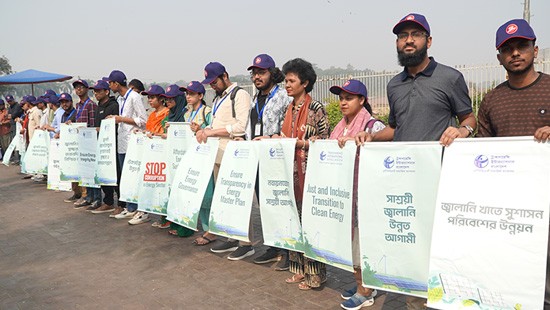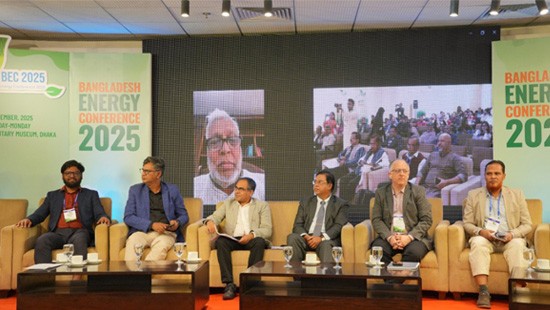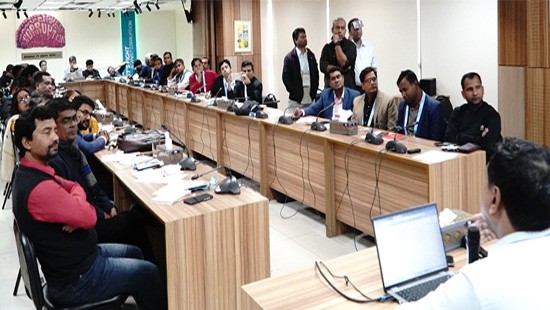Published: 07 January 2022

Dhaka, 5 January 2022: The shortcomings of the existing environmental laws and their lacklustre enforcement, irregularities and corruption from a section of the workforce, and overall low scores in all governance indexes point out that corruption has been institutionalised at the government's Department of Environment (DoE). As a result, the department has turned out to be a weak, corrupted and incapable public office, said Transparency International Bangladesh (TIB) at a virtual press briefing on the research release titled 'Governance Challenges at the Department of Environment and Way Forward’.
The research, which collected data from April 2019 to December 2021, has unearthed that the department has been impacted by bureaucratic dependency, lack of modern surveying systems, and inadequate professional skills. A section of the department's workforce is involved in illegal transactions with corrupt parties and polluters, making corruption institutional. The department’s activities are also hampered as a section of the workforce works in tandem with owners of polluting industries and surrender to their influence.
Moreover, the Geographical Information System (GIS) and the Remote Sensing Technology have not been expanded for the department's activities. As most surveys are conducted manually, the DoE cannot determine the pollution level correctly.
The DoE is more interested in collecting revenue and sidesteps the primary responsibility of protecting the environment. Under the financial management index, the research has demonstrated that the department cannot spend the allocated budget on pollution control, despite this activity being the department's most important one.
Overall, the DoE has failed to fulfil its responsibilities outlined by laws and regulations. TIB Executive Director Dr. Iftekharuzzaman said, “The DoE has been rattled by deficiencies in every governance index included in the research. A section of the department's workforce is involved in corruption as they join hands with owners of polluting industries. As a result, the department is drowning in corruption. Even though the department is tasked with controlling corruption and dealing with climate change factors, the DoE is somewhat doing the opposite. The department has to be overhauled by curbing irregularities, corruption, lack of skills and the overall lack of governance. Good governance must be ensured, and the DoE must be freed from vested industrialists' influence by making all corrupt employees accountable. If this is not carried out, the impacts of environmental pollution and the climate crisis will be severe, and the SDGs related to this cannot be achieved.”
TIB also pointed out ten recommendations to overcome challenges in the DoE. The most prominent one is to bring all mega projects and industries under accountability mechanisms by sidestepping all pressures and financial incentives.
The full report and recommendations can be found here - পরিবেশ অধিদপ্তরে সুশাসনের চ্যালেঞ্জ ও উত্তরণের উপায়






